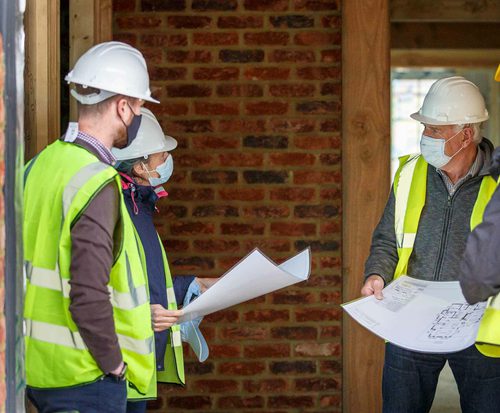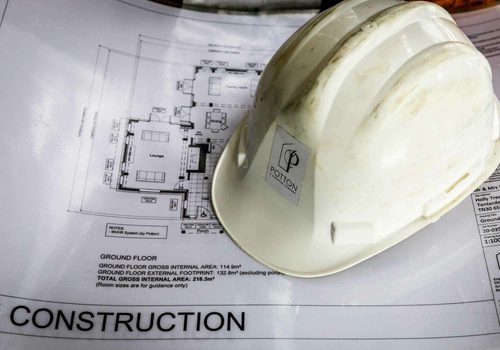It’s important to have contracts in place with the people that are working on your project. This provides you, your build and your contractors with invaluable protection. Contracts also help you maintain good relationships with all involved as the information is clear to everyone and you are all on the same page. If something does go wrong, your contract will give you recourse.
Why do I need a contract?
Contracts are a legal framework where everyone’s obligations are clearly set out. A contract should enable you to resolve disagreements or uncertainties about a particular aspect of the work, preventing disputes with your contractors that might delay the build.
A contract will also help you to keep track of how your contractors are performing. If they’re not living up to what they promised in the contract, it is easy to challenge them with clear terms to point to. Obviously, if the worst does happen and a dispute ends in court, a contract will significantly increase your chances of a good outcome.
The benefit of a good contract goes both ways, not just because it gives your contractor legal protection if you don’t uphold your side. A good contract will take account of alterations and extra work, making it easier for your contractor to explain the impact of any changes or additions that you want. It will also enable clear communication by setting out expectations for both sides. Some smaller firms or sole traders might feel intimidated by a lengthy formal contract, however, it should make work on site a lot quicker and less stressful for everyone involved.
You might feel daunted by having things set in stone from the get go but there’s no need to be as contracts can be adjusted. In fact, it’s a good idea to refer back to them during the build. There could be items that need amending, to reflect how things are progressing on site but you’ll need to do this alongside your contractor. Contracts and amendments have to be agreed by both sides involved and then properly recorded.
Can a contract save me money?
Yes. By regularising the agreed costs and setting out the scope of the work. A contract makes it far easier to keep control of the budget. It should also help prevent any delays, as the timeline and expectations can be formally agreed. You should include some provision for extra work, like how it will be measured and charged. By the hour or on a day rate? That way, you can make an informed decision about additions or changes.
A contract will never be able to account for all the extra costs that come up during a build, so you’ll still need your contingency fund. However, it should help you make sure that you are not overcharged or you don’t spend money you don’t have!
What makes a good construction contract?
A ‘good’ construction contract will depend on your project requirements but there are several basic things that you’ll want it to cover.
- The parameters of the work and exactly what you’re contracting the contractor to do
- The costs involved and how and when payments will be made - remember those provisions for extra work!
- The timescale, including crucial deadlines
- The quality of the work expected
- A concrete procedure for how any disagreements or disputes can be resolved
You may also want to add additional clauses depending on the complexities of the project.
How do I draw up a contract?
You have a couple of options for creating a contract, each with unique pros and cons.
The most obvious is to ask a lawyer to draw one up for you. This gives you the certainty that the contract is legally enforceable. However, this can be expensive and isn’t really necessary, unless your requirements are particularly complicated. Remember that you can keep costs down by asking a lawyer to look over a contract you’ve already drawn up yourself.
A solution used by many self-builders is to rely on a standard contract. There are many resources online where you will be able to find a contract that suits you. Obviously, you need to be careful that the source you use is reputable and UK focused. The JCT (Joint Contract Tribunal) has been creating construction contracts for over 90 years and have an excellent downloadable contract for self-builders. You can also look at Contract Store who offer a package of simple self-building contracts too.
You can also forgo a contract in favour of a summary appointment that you create yourself. You should put together a complete paper trail of the process. Including details of the meetings and documentation like quotes and architectural drawings and any emails that have passed between you. You’ll also need to get written acknowledgement of receipt from the other party and their total agreement that your summary is accurate.
At Potton, our experts are ready to help you get the most out of your self build by making sure you have all the knowledge and support you need. Contact us today to discuss your project.




